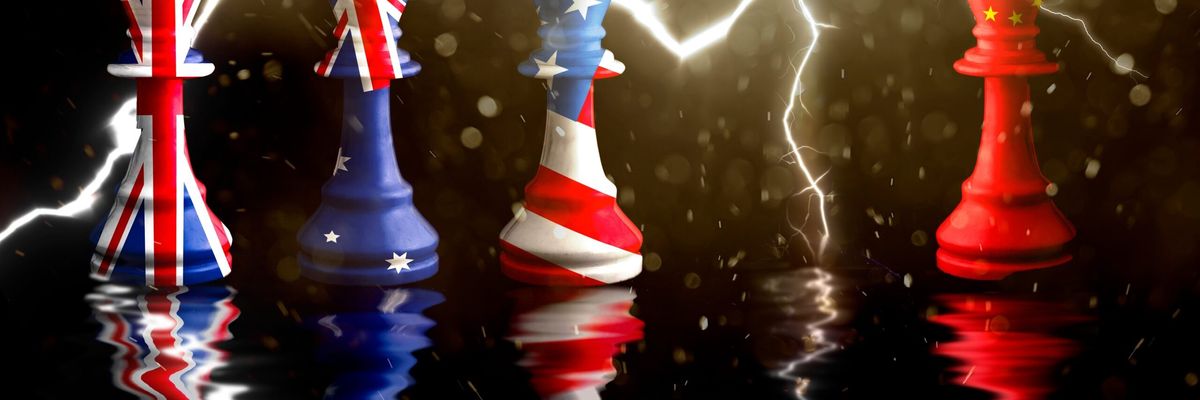The leaders of the United States, United Kingdom and Australia — the three nations that form the AUKUS security grouping— have issued a joint statement recently on deepening their cooperation to include new technologies. The statement spoke of “new trilateral cooperation on hypersonics and counter-hypersonics, and electronic warfare capabilities, as well as to expand information sharing and to deepen cooperation on defense innovation.”
AUKUS is an explicitly military pact announced in September 2021 aimed to counter China in the Asia-Pacific. It has been generally portrayed as an agreement to transfer highly sensitive nuclear submarine technology to Australia and equip Canberra with such craft. Since then, the submarine plans have made some progress, with the Exchange of Naval Nuclear Propulsion Information Agreement signed by the three countries, which allows sharing of sensitive data. Australian Prime Minister Scott Morrison has also announced the earmarking of an additional base for nuclear submarines on the country’s east coast.
But AUKUS is as much, or even more, about other defense technologies such as cyber, artificial intelligence, quantum physics, and others to which hypersonics is just the latest addition. The likely reason for adding the latter is China’s own progress in this technology, with a recent test that was seen in the United States as a breakthrough. The United States is widely considered to be behind China and Russia in hypersonic technology. However, Washington is very much implicated in Chinese advances. The United States probably sparked China’s drive for hypersonics when it withdrew from the bedrock Anti-Ballistic Missile (ABM) treaty in 2001.
Last year, I wrote about the dangers and risks AUKUS presents to the stability and security of Asia. These include setting a poor precedent for curbing nuclear proliferation, problematic weaponization of norms and values claims, the perception of an Anglo-Saxon club in Asia, and risks of sparking a new arms race. Deterrence has a place in any U.S. approach toward China, but the U.S. Indo-Pacific strategy is heavy on deterrence and light on reassurance. The inclusion of hypersonics in AUKUS is simply another sign that we have entered a world of decreasing safeguards against chances of great power conflict with all its potential to go nuclear. Nuclear war, more than the rise of China, is a core and existential threat to the United States.
Moreover, most of the initiatives announced as a part of AUKUS, including the nuclear submarines provision, are slated to yield their deliverables over a long timescale of decades from now. However, the response from China and others may emerge much sooner. Unsurprisingly, Beijing has taken unkindly to the formation of the AUKUS bloc, and Southeast Asian reactions have been mixed, with Indonesia and Malaysia worried. Thoughtful Australian analysts have also expressed concerns. AUKUS therefore may well be frontloading its risks and backloading its supposed payoffs.














